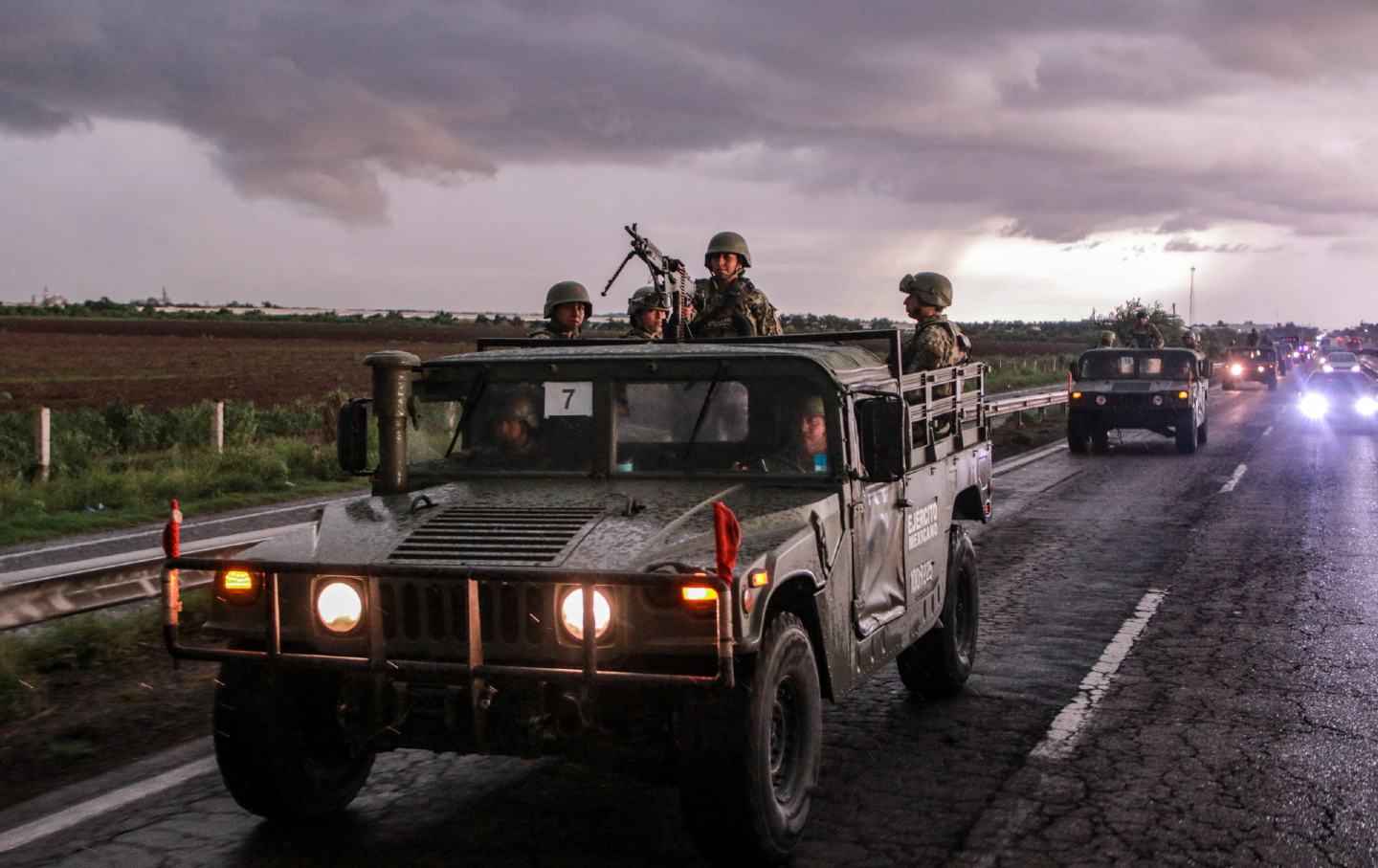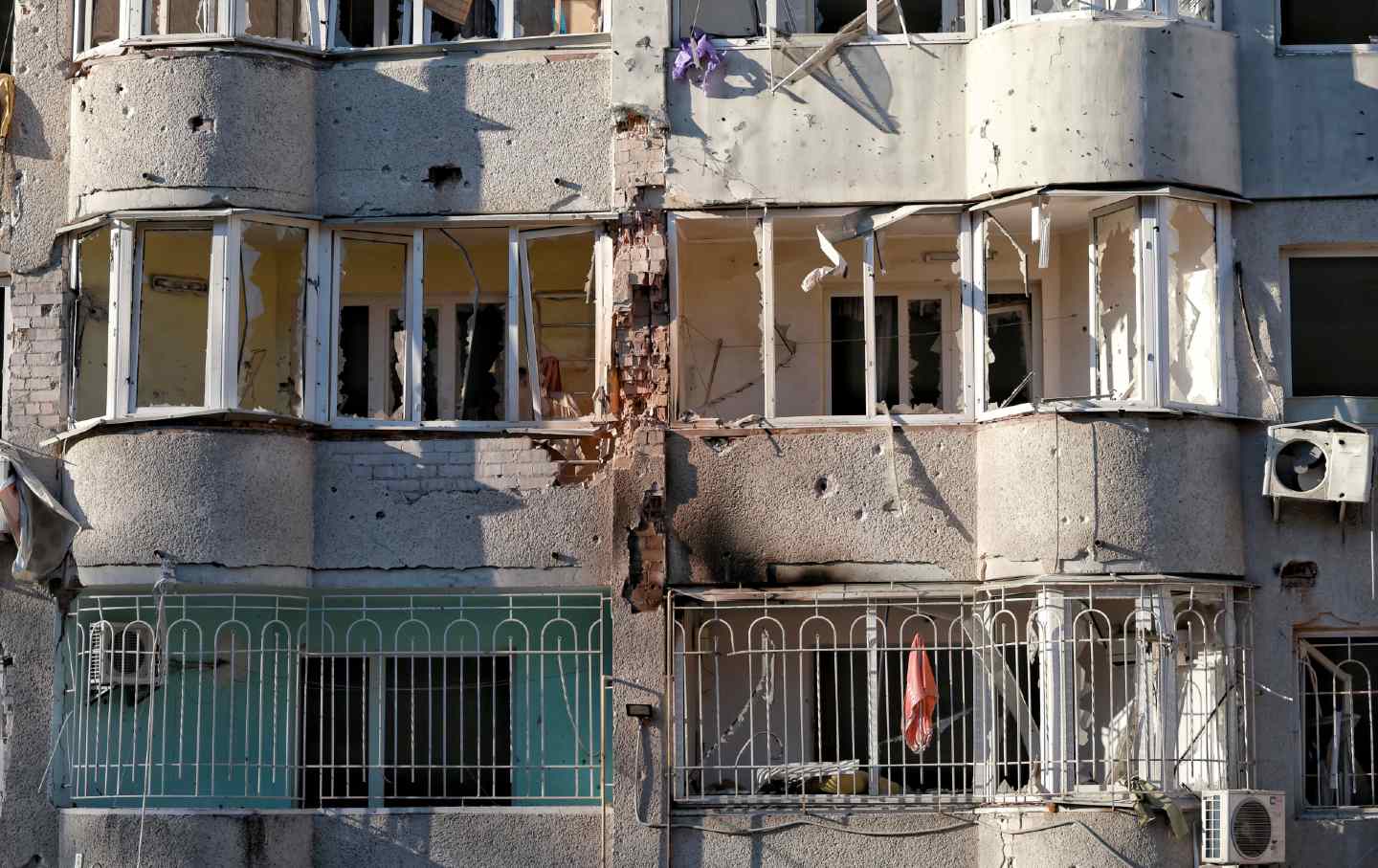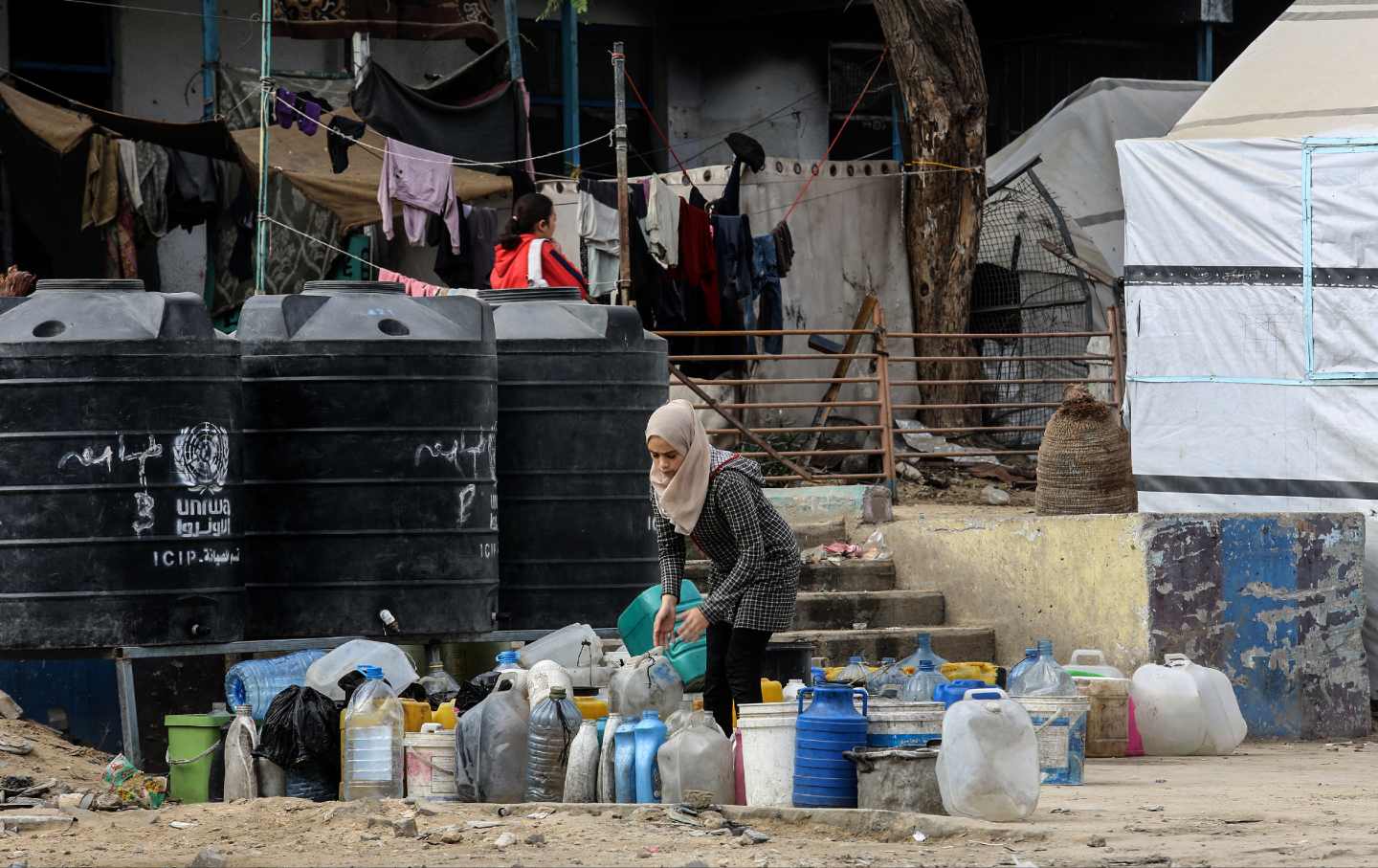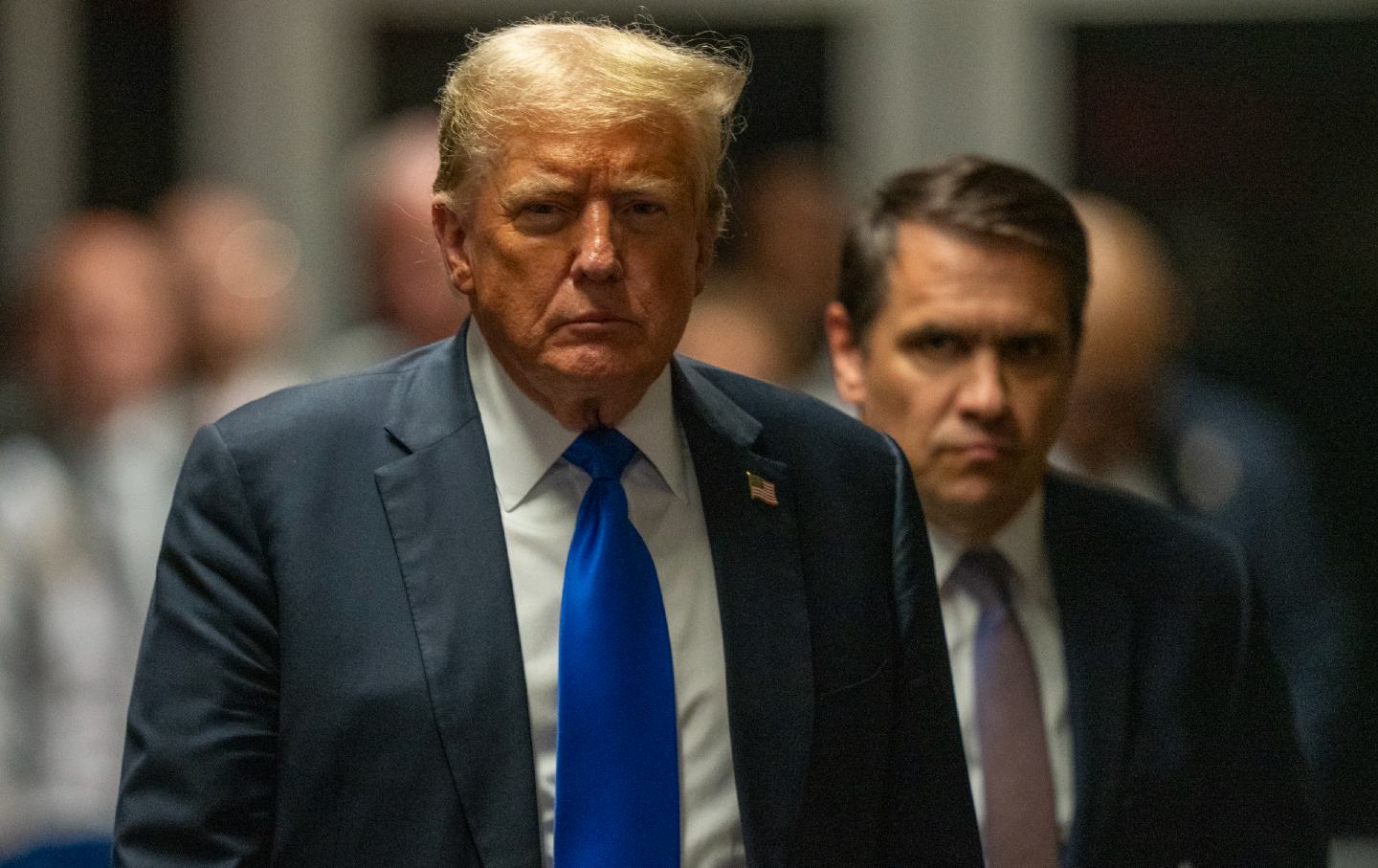Local Elections in Britain Put the Labour Party’s Stance on Gaza Under the Spotlight
Labour leader Keir Starmer is favored to win the UK’s general election later this year, but—as with Joe Biden—there is one word that could derail his campaign: Gaza.

London—In local elections in Britain last week, Labour made gains against the divided and unpopular governing Conservatives. On the face of it, the party’s wins in high-profile mayoral contests, a by-election for a seat in Parliament, and elections of local authorities in England look like a bandwagon with unstoppable momentum.
But the elections also brought to the surface deep disquiet about Labour support for Israel’s slaughter in Gaza, particularly among younger voters and in areas with a large Muslim population. While the Conservatives had a net loss of 473 seats on local councils, Labour could muster only a net gain of 185 as the Greens and independents surged in some of its heartlands.
Local elections in Britain often see candidates with no party affiliation winning seats, but this was different in both scale and politics: Many of the successful candidates who gave independents a net gain of 93 seats were ex-Labour councillors who had resigned from the party over its stance on Gaza. This was particularly the case in Lancashire and West Yorkshire, where districts such as Blackburn, Kirklees, Bradford, and Oldham saw independents take seats from Labour.
In Oldham, where Labour lost its majority on the council after independents gained seven seats, the Manchester Evening News reported that they were “in wards where the war in Gaza—and the party’s stance on the conflict—is understood to have been a decisive factor.”
Regardless of whether independents were standing, Labour saw its support plummet in areas with large Muslim communities. A BBC analysis of 58 local council wards across England where more than one in five residents identify as Muslim found that Labour’s share of the vote was 21 percent down from 2021—the last time most of these seats were contested.
Meanwhile, the party’s narrow but totemic victory against the incumbent Conservative mayor in the West Midlands, which includes Birmingham, came with the sting in its tail thanks to an independent, Akhmed Yakoob, winning 11.7 percent of the vote. Worse still for the party, the 69,621 who supported Yakoob are concentrated in constituencies Labour must retain or gain to achieve a Parliamentary majority.
Labour’s troubles were, however, not confined to Muslim voters. Discontent over Starmer’s position on Gaza is particularly strong among younger voters, and this was undoubtedly a factor in the Greens’ making 74 gains. In Bristol, their 10 gains left them only two short of an overall majority on the city council. In Stroud and Hastings—both prime targets for Labour in a general election—they made nine and eight gains respectively to become the largest party in both towns.
Some of the Labour responses to its loss of support over Gaza have far from helped its cause. Last October, when Labour was first hit by councillors resigning, someone the media described as “a senior Labour source” said the party was merely “shaking off the fleas.” Last Friday, when Labour thought it was heading for defeat in the West Midlands, the BBC quoted another “senior party source” as saying, “It’s the Middle East, not West Midlands, that will have won [Conservative candidate] Andy Street the mayoralty. Once again, Hamas are the real villains.”
The furor this triggered prompted Labour to condemn the comment as racist and say it had not come from “anyone who is speaking on behalf of the party.”
Nevertheless, the incident has added to the evidence of a Labour Islamophobia problem. Zarah Sultana, a Labour MP in Coventry and cochair of the Socialist Campaign Group, said, “Once again, I’m deeply disturbed by Islamophobic quotes given to the media by ‘Labour sources.’… As a party we need to listen to and acknowledge concerns, not hold British Muslims in contempt.”
This was echoed by the more astute supporters of Starmer, including John McTernan, who served as Tony Blair’s political secretary in Downing Street for two years. He posted a tweet saying that “we are being sent a message about Gaza and must listen, understand, and act.” When asked by a journalist what ‘act’ meant, he said: “Engage directly with the voters who have abandoned us over Gaza. Push more visibly and vocally for peace.”
But will Starmer do that? Like Biden, he has changed his tone in recent weeks as evidence of Israeli atrocities has become overwhelming. But the substance of his position has shifted only marginally since October, when he was asked in a radio interview if Israel had the right to cut off water and power to Gaza and replied, “I think Israel does have that right,” a statement he later claimed was a reference only to Israel’s having a right to defend itself.
Even now, after more than 30,000 deaths, Labour continues to support supplying arms to Israel and has not been insisting that Netanyahu abandon plans for an assault on Rafah as part of a hostage deal.
Despite the electoral warning signals, Starmer is unlikely to change his position on Gaza unless the White House does. In January, he told Labour MPs that he is in regular contact with Biden’s national security adviser Jake Sullivan on Gaza. In February, he boasted that he had “crafted” the ambiguous resolution Labour tabled in the House of Commons on Gaza after speaking to US Secretary of State Anthony Blinken.
Popular
“swipe left below to view more authors”Swipe →It is not yet clear how all this will play out when the UK’s general election comes. Manchester University professor Rob Ford says the “fragmentation” seen in the local elections “confirms what we see in polling: a restive electorate that is angry at the Conservatives, unenthused by Labour and open to new alternatives.”
The BBC estimated the Labour vote in the local elections to be equivalent to a national vote share of 34 percent, well below the 44 percent average Labour has been gaining in opinion polls. For Sky News, Plymouth University professor Michael Thrasher projected that Labour is on course to be the largest party in Parliament but will fall short of a Commons majority by 32 seats.
In general elections, Britain’s first-past-the-post system favors the two major parties. But the Greens and independents tend to be strong in seats where there is little or no chance that votes for them will let the Conservatives win. That means left-leaning voters will be under less pressure to back Labour as the lesser evil, giving Greens and independents a better chance of adding to the handful of seats they currently hold. The upshot could well be a hung Parliament in which Starmer, ironically, needs the backing of his strongest Gaza critics to form a government.
The trouble with calling people fleas is that they can and do bite back.
We cannot back down
We now confront a second Trump presidency.
There’s not a moment to lose. We must harness our fears, our grief, and yes, our anger, to resist the dangerous policies Donald Trump will unleash on our country. We rededicate ourselves to our role as journalists and writers of principle and conscience.
Today, we also steel ourselves for the fight ahead. It will demand a fearless spirit, an informed mind, wise analysis, and humane resistance. We face the enactment of Project 2025, a far-right supreme court, political authoritarianism, increasing inequality and record homelessness, a looming climate crisis, and conflicts abroad. The Nation will expose and propose, nurture investigative reporting, and stand together as a community to keep hope and possibility alive. The Nation’s work will continue—as it has in good and not-so-good times—to develop alternative ideas and visions, to deepen our mission of truth-telling and deep reporting, and to further solidarity in a nation divided.
Armed with a remarkable 160 years of bold, independent journalism, our mandate today remains the same as when abolitionists first founded The Nation—to uphold the principles of democracy and freedom, serve as a beacon through the darkest days of resistance, and to envision and struggle for a brighter future.
The day is dark, the forces arrayed are tenacious, but as the late Nation editorial board member Toni Morrison wrote “No! This is precisely the time when artists go to work. There is no time for despair, no place for self-pity, no need for silence, no room for fear. We speak, we write, we do language. That is how civilizations heal.”
I urge you to stand with The Nation and donate today.
Onwards,
Katrina vanden Heuvel
Editorial Director and Publisher, The Nation
More from The Nation

With Trump in the White House, Can Mexico Avoid Making the Drug War even Bloodier? With Trump in the White House, Can Mexico Avoid Making the Drug War even Bloodier?
Mexico’s new president, Claudia Sheinbaum, has a plan to combat drug trafficking, but she has a problem: Donald Trump.

Biden’s Mindless Escalation Is a Final Betrayal of Ukraine Biden’s Mindless Escalation Is a Final Betrayal of Ukraine
Instead of preparing for inevitable negotiations, the outgoing president adds fuel to the fire.

The Women Who Remain in Gaza Will Never Leave Me The Women Who Remain in Gaza Will Never Leave Me
I survived eight terrible months of genocide. Now, I’m in exile—but I can’t stop thinking about the women who have remained.

Trump’s Second Presidency Will Only Accelerate America's Imperial Decline Trump’s Second Presidency Will Only Accelerate America's Imperial Decline
Trump is on track to bring a hasty end, silent or otherwise, to an “American Century” of global dominion.

Warning From the Past Warning From the Past
In a new film, journalists confront a dictator.

The Case Against Joe Biden for Complicity in Genocide The Case Against Joe Biden for Complicity in Genocide
The ICC has applied for an arrest warrant for Benjamin Netanyahu. But Israel’s assault on Gaza has been made possible by US support.


